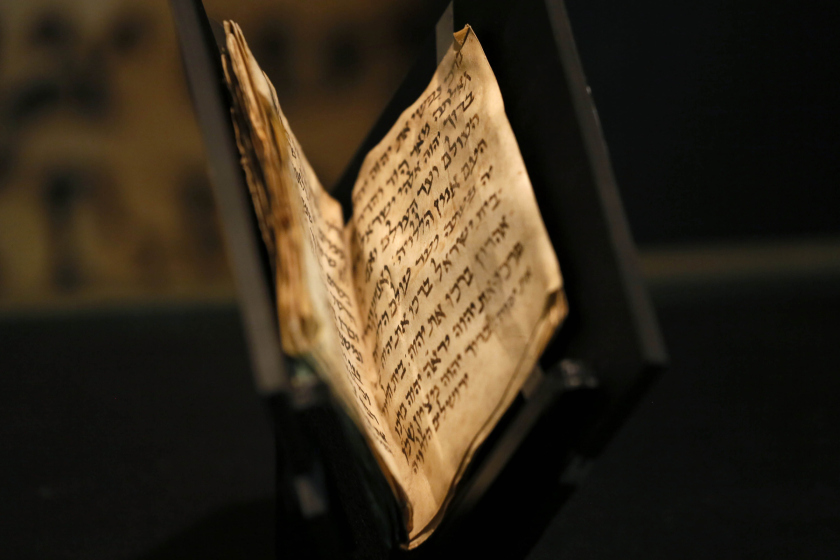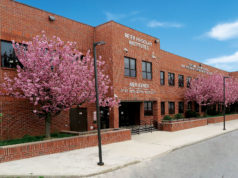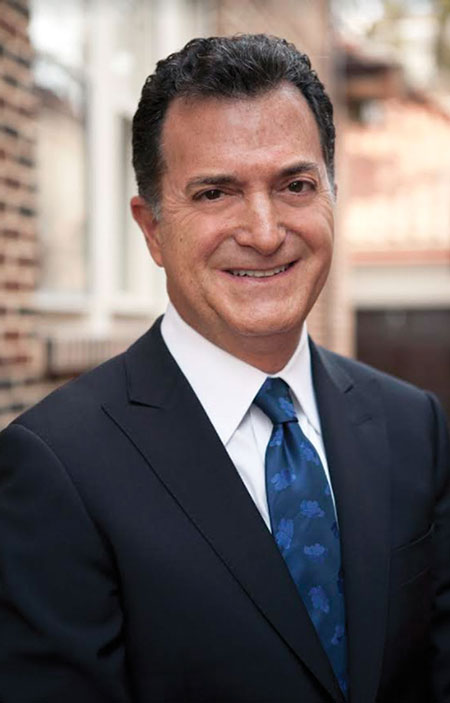
SARINA ROFFE
Gemillut Hasadim (giving to others) isn’t something a person does—It’s who he/she is.
FROM THE TIME HE WAS A CHILD, RICKY COHEN WATCHED AND LEARNED FROM THE EFFORTS OF HIS FATHER ABE COHEN A”H, ON BEHALF OF THE COMMUNITY, AS WELL AS THE EFFORTS OF OTHER COMMUNITY LEADERS. ABE AND HIS CONTEMPORARIES WERE VISIONARIES; LEADING, INSPIRING AND BUILDING OUR COMMUNITY AND ITS MEMBERS.
Ricky remembers, “I was fortunate, from time to time, to be in the room when my father, along with the congregation’s lay leaders, Chief Rabbi Jacob Kassin zt’l, and later, Hacham Baruch zt’l, discussed complex community issues, many of which would shape the community with an impact for decades to come.”
For 60 years, from the time Abe Cohen was 34 years old, he was involved in the leadership at Shaare Zion Congregation. As Chairman of the Building Committee in the 1950’s, he built our cherished Shaare Zion, a several year project, against a backdrop of extraordinary challenges. He doubled the synagogue in size in the early 90’s. At that point, he was 80 years old and faced substantial opposition on the new and ambitious project. The project was completed in four years and paid for in full a handful of years later. At the age of 94, before he became ill, Abe was walking around with the plans to expand the synagogue further.
“Dad built us. He taught how to embrace the needs of the community. He got stronger as he got older,” Ricky describes. “Decisions were based on what was best for the long term for the community. Leadership means you don’t look at today or tomorrow to frame a decision. Instead, you look at today, tomorrow and 25 years from now and that shapes the decision-making process.”
Geri, A”H, Ricky’s mom, was her husband’s strength, standing with him, side-by-side and providing him with unlimited love and support. She was a humble powerhouse in her own right. Quietly working with many Sephardic Bikur Holim (SBH) cases, day after day, with zero fanfare. When the latest waves of Syrian Jews arrived, she spent months taking people back and forth to government offices, doctors and helped them with whatever they needed to do in a country where they had no experience. Her warmth, beauty and fluent Arabic were a source of immeasurable comfort.
“I also learned from Joseph Beyda A”H, who was President of SBH. At that time, SBH was very successful, primarily focused on visiting the sick and helping the poor. Joseph promoted the vision of SBH as a mental health organization, which he felt would address a widespread and deep-felt need and transform the community for the better. Although he received little support for this major refocus, he persevered and within a short time his dream was realized. Today SBH is first and foremost, a multi-faceted mental health organization, while providing other services as well.”
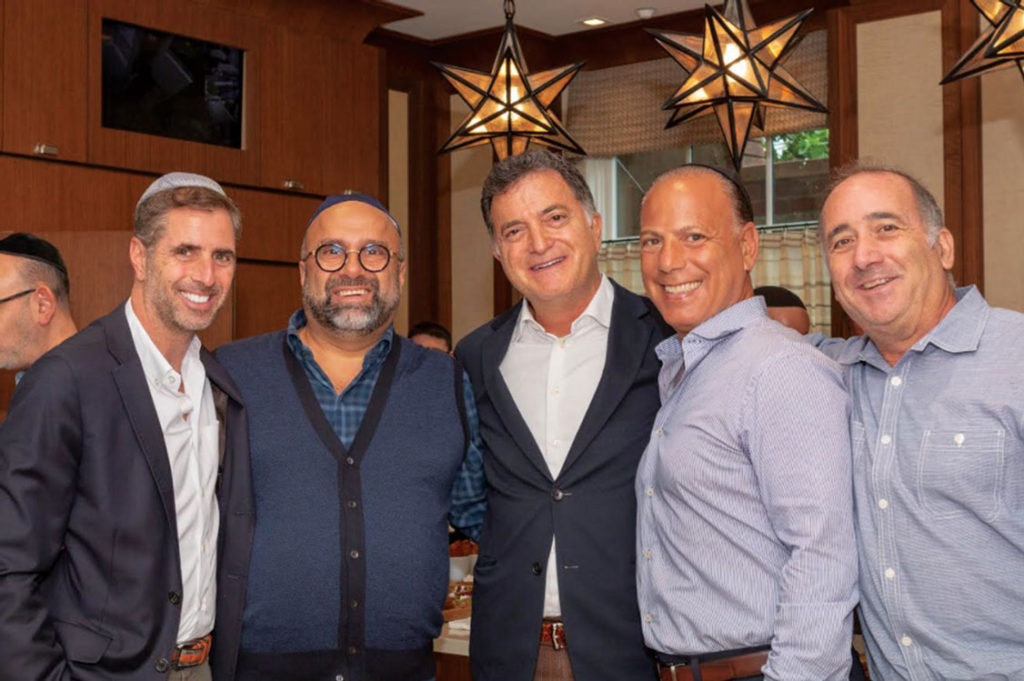
In 1977, Ricky went to Israel after high school to learn in yeshivah. While there, he was struck by idealistic Israelis, people who sacrificed for their country and its people, and by an attitude taken from Israel’s founding father, David Ben-Gurion, that framed his thinking. The difficult we do first; the impossible takes a little longer.
While in Israel, Ricky became committed to Torah learning and when he returned to Brooklyn, he began teaching Torah insights to teens. His words enabled their individual growth and ultimately provided them with a love for Torah and Torah learning, and the tools for personal and career success. The popular informal gatherings also resulted in several couples meeting and getting married.
He soon became an advisor for Yeshiva University seminar and later, led the program. The emotional well-being of the student was the first priority providing a platform for building a relationship with Hashem and building a lifestyle committed to giving and growing. A request from Rabbi Avner Taler from the Yeshivah of Flatbush to teach a small group of senior boys became the genesis for a curriculum on personal and career leadership based in Torah. From there, other volunteer teaching opportunities abounded at Magen David Yeshivah and Sephardic High School, as well as a course at Baruch College in business ethics and social responsibility.
Over the years, Ricky inspired the minds of thousands of men and women and provided them with the skills needed for individual and career success. His “Risk to Succeed” workshop was implemented by community organizations and industry leaders, such as Chase Bank and the United States Navy. His “Risk to Succeed” book has been read by thousands and translated into other languages.
Ricky’s success as a young entrepreneur was a result of the emphasis that he placed on risk taking and personal leadership. He infused company employees with an entrepreneurial spirit and the tools to achieve on unprecedented levels.
In 1988, Maurice Hedaya introduced Ricky and his close friend Ezra Ashkenazi to a small group of Syrian immigrants who shared information about the plight of the Jews in Syria, their suffering and persecution. Even though they were only 28 years old, Ezra and Ricky sprang into action helping Dr. Mayer Ballas and Albert Ayal create a greater level of structure and organization for SOSJ (Save Our Syrian Jews). It later became the Council for the Rescue of Syrian Jews (CRSJ) with an expanded committee filled with professionals such as Alice Sardell, Marcos Zalta, lobbyist Suri Kasirer, amongst other community volunteers. From an office based in Conway Stores (which Ricky’s father founded), with a concentrated effort of political mobilization and multi-point, international pressure, in 1992, 3,500 Syrian Jews were successfully airlifted to New York.
“Arevut (responsibility to one’s community and responsibility to the world) defines us, empowers us and obligates us,” said Ricky. “We have a collective destiny and responsibility. Borei Olam designed our Jewish people that way, and each community with its respective level of obligation and opportunity.”
Ricky focuses his volunteerism on the community. “I am hardwired to give, and I love people and learning. I wanted to focus on my own community. Informal education with a strong emphasis on Torah learning and sharing ideas helps people amass knowledge, be inspired and acquire the tools to grow.”
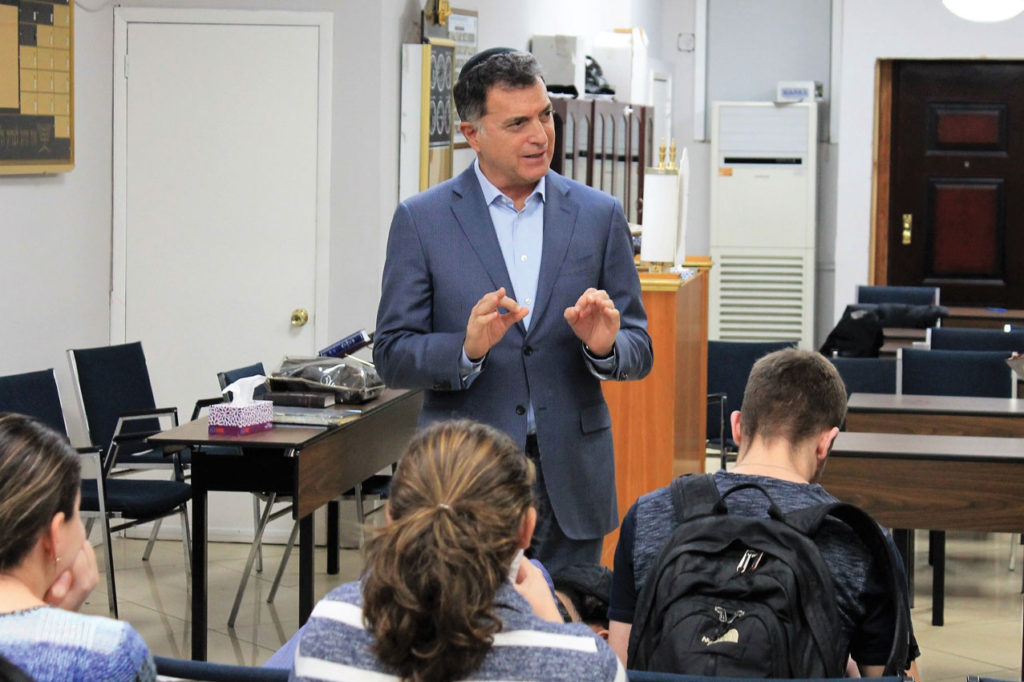
Ricky’s approach to hesed is to establish ambitious, long term, goals realized over time through a rigorous day-to-day plan.
In 2008, Barkai Yeshiva was struggling. It was a difficult time for Ricky—his father had recently died, his mother was very sick, and his business had been adversely affected by the financial crisis. Community leader Morris Bailey turned to Ricky and asked him to become president of the yeshiva. The institution, like most in our community, was a jewel in need of the right care, sense of purpose, and resolve. Today, Barkai remains a premier institution, graduating young men and women with outstanding middot (values) and excellent academic achievement. Approximately half of the Barkai graduating students get into the class of the high school of their choice; each and every year.
Over the last three decades, the home of Jamie and Ricky Cohen, on Jerome Avenue in Deal has hosted tens of community related events from Chai Lifeline to Elliot’s Legacy, from minyanim when needed to classes, plays, concerts, singles events, and more.
“Throughout our lives together, Jamie has been a partner and initiator of the hesed efforts in which we’ve been involved. We’re incredibly proud of our children and young adult grandchildren, who have built on the foundation given to them and their family legacy, to be initiators of new community efforts to help others, here, in the broader Jewish community, and in Israel,” said Ricky.
“In Judaism we pay it forward. Giving with your time is a primary expression of gemilut hasadim (acts of loving kindness). In Judaism we become, we come into our own, by giving to others. We become happier and more complete. The primary beneficiary of hesed is invariably the giver.”
A genealogist and historian, Sarina Roffé is the author of Branching Out from Sepharad (Sephardic Heritage Project, 2017), Backyard Kitchen: The Main Course, Backyard Kitchen: Mediterranean Salads, and the cooking app, Sarina’s Sephardic Cuisine. She is the editor of Dorot, and holds a BA in Journalism, and MA in Jewish Studies and an MBA. Sarina is President of the Sephardic Heritage Project, Co-Chair of the Brooklyn Jewish Historical Initiative and Chair of the Sephardic Research Division of JewishGen.

